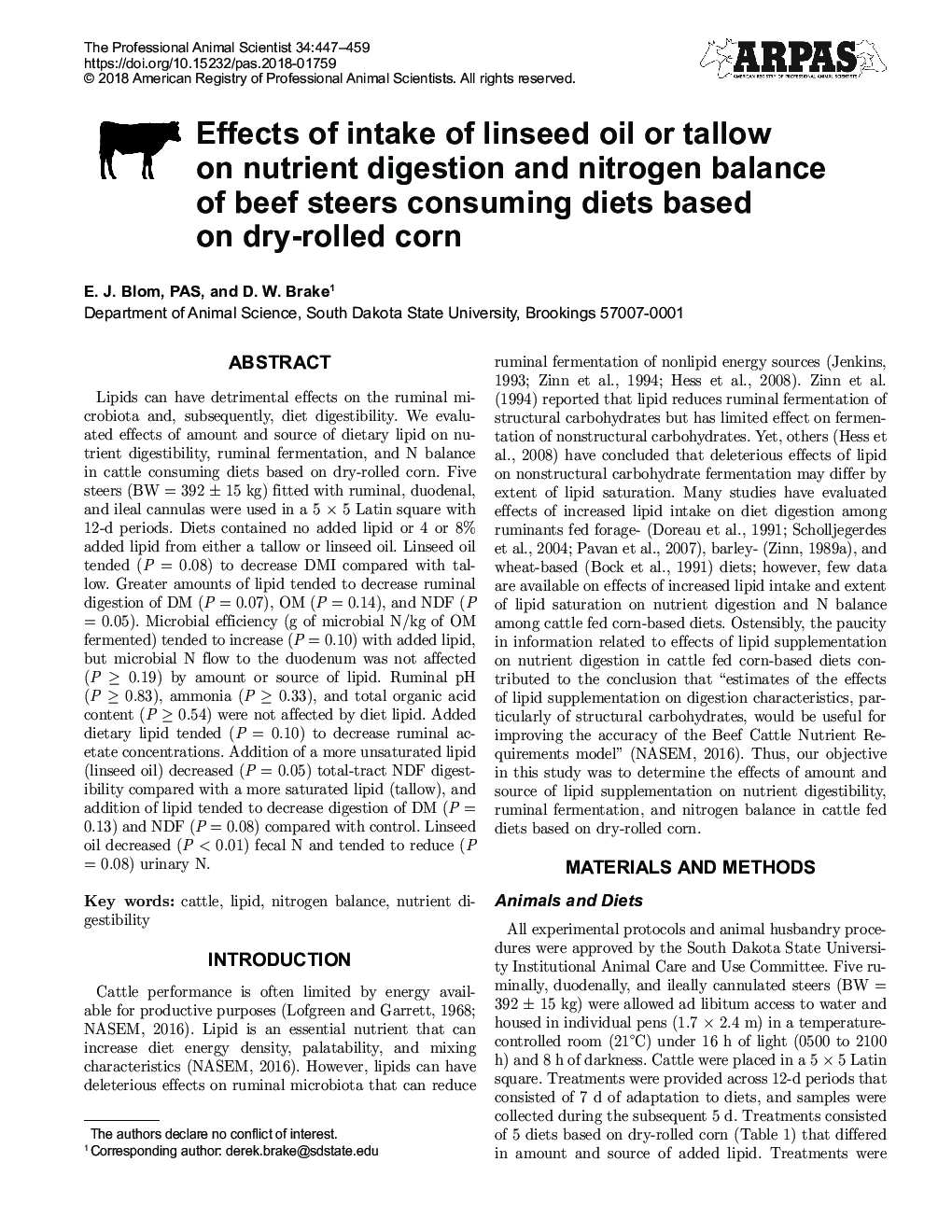| Article ID | Journal | Published Year | Pages | File Type |
|---|---|---|---|---|
| 10158131 | The Professional Animal Scientist | 2018 | 13 Pages |
Abstract
Lipids can have detrimental effects on the ruminal microbiota and, subsequently, diet digestibility. We evaluated effects of amount and source of dietary lipid on nutrient digestibility, ruminal fermentation, and N balance in cattle consuming diets based on dry-rolled corn. Five steers (BW = 392 ± 15 kg) fitted with ruminal, duodenal, and ileal cannulas were used in a 5 à 5 Latin square with 12-d periods. Diets contained no added lipid or 4 or 8% added lipid from either a tallow or linseed oil. Linseed oil tended (P = 0.08) to decrease DMI compared with tallow. Greater amounts of lipid tended to decrease ruminal digestion of DM (P = 0.07), OM (P = 0.14), and NDF (P = 0.05). Microbial efficiency (g of microbial N/kg of OM fermented) tended to increase (P = 0.10) with added lipid, but microbial N flow to the duodenum was not affected (P ⥠0.19) by amount or source of lipid. Ruminal pH (P ⥠0.83), ammonia (P ⥠0.33), and total organic acid content (P ⥠0.54) were not affected by diet lipid. Added dietary lipid tended (P = 0.10) to decrease ruminal acetate concentrations. Addition of a more unsaturated lipid (linseed oil) decreased (P = 0.05) total-tract NDF digestibility compared with a more saturated lipid (tallow), and addition of lipid tended to decrease digestion of DM (P = 0.13) and NDF (P = 0.08) compared with control. Linseed oil decreased (P < 0.01) fecal N and tended to reduce (P = 0.08) urinary N.
Related Topics
Life Sciences
Agricultural and Biological Sciences
Animal Science and Zoology
Authors
E.J. PAS, D.W. Brake,
